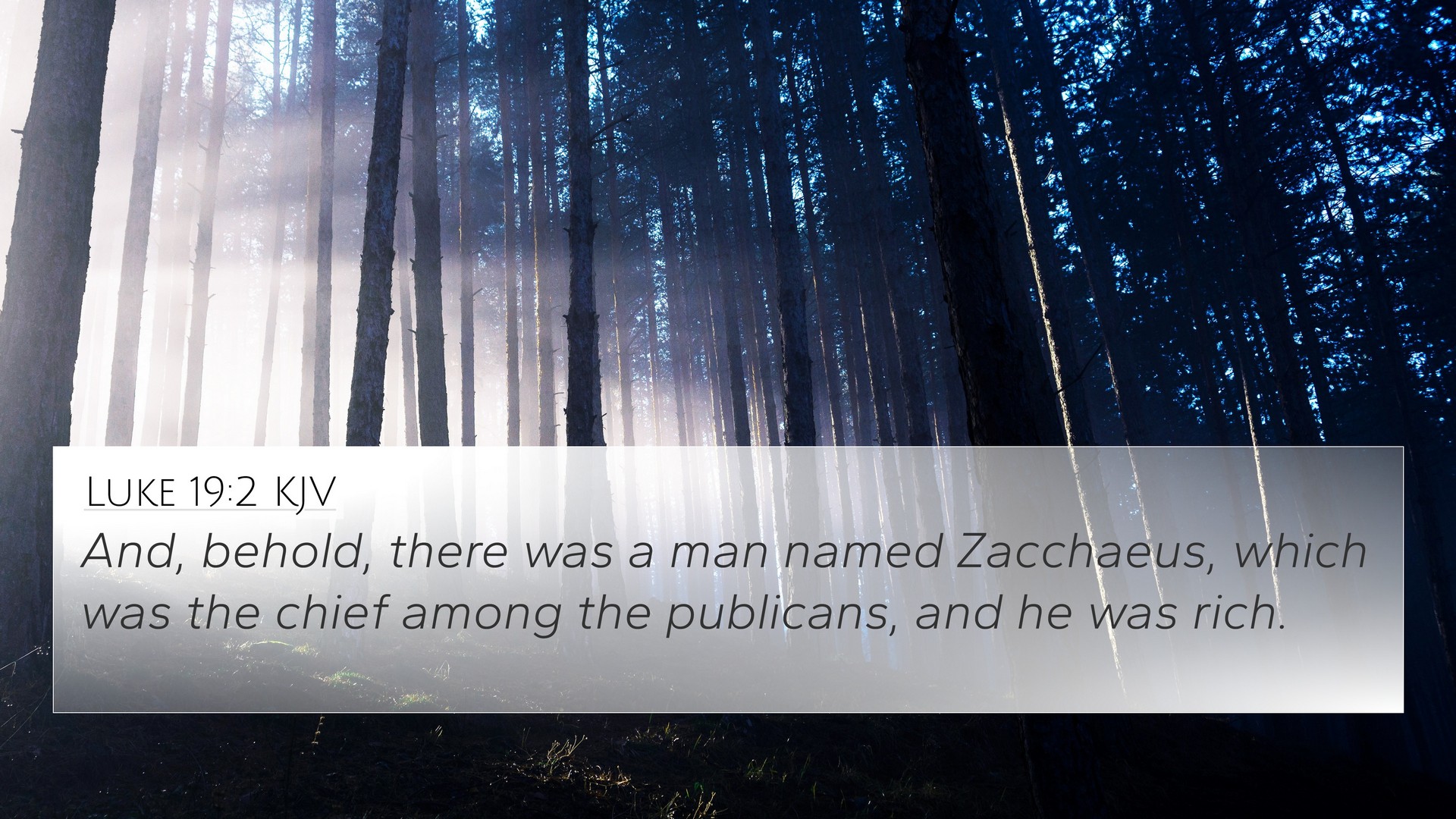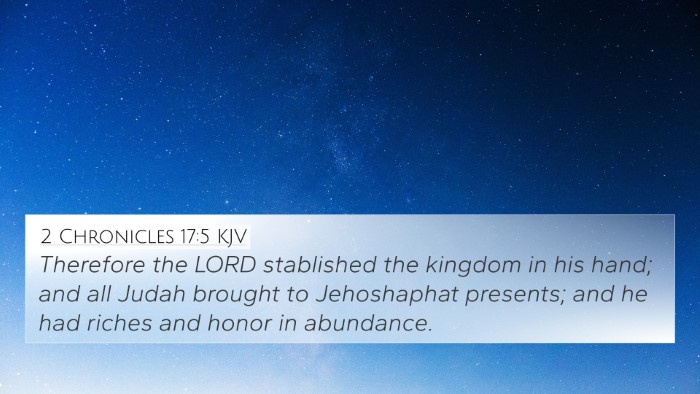Understanding Luke 19:2
In Luke 19:2, we encounter the character of Zacchaeus, a chief tax collector in Jericho. The verse reads:
“And behold, there was a man named Zacchaeus, which was the chief among the publicans, and he was rich.”
Summary of the Verse
This verse sets the stage for one of the most profound transformation stories in the New Testament. Zacchaeus, although wealthy, was despised due to his profession of a tax collector—a role often associated with greed and betrayal. His position as chief among the publicans suggests he was not only rich but also likely an influential figure. This context is essential for comprehending the significance of his encounter with Jesus.
Insights from Public Domain Commentaries
Matthew Henry's Commentary
Matthew Henry observes that Zacchaeus represents the grace of God reaching out to the most unlikely individuals. The emphasis on his being 'rich' highlights not only his wealth but also the emptiness that often accompanies material riches, setting a dramatic contrast to the spiritual awakening that Jesus offers.
Albert Barnes' Notes
Albert Barnes notes that Zacchaeus was not just any tax collector; he held a prominent position which would have placed him at odds with the Jewish populace. The mention of his wealth also serves to challenge the notion that riches equate to righteousness in the Biblical context, leading to a deeper inquiry into the values seen in Luke’s Gospel.
Adam Clarke's Commentary
Adam Clarke discusses the implications of Zacchaeus's status, pointing out that tax collectors were often viewed with contempt. Clarke emphasizes that the narrative invites readers to consider how Jesus’s ministry transcends social barriers and reaches out to those marginalized by society.
Related Bible Verses
To enrich our understanding of Luke 19:2, several Bible verses that are intricately connected include:
- Matthew 9:10-13 - Jesus dines with tax collectors, highlighting His mission to save sinners.
- Luke 15:1-2 - The Pharisees' disdain for Jesus associating with sinners and tax collectors.
- 1 Timothy 1:15 - Paul refers to himself as the chief of sinners, echoing the idea of redemption for the worst of society.
- Luke 18:9-14 - The parable of the Pharisee and the tax collector contrasts pride with humility.
- Matthew 19:24 - “It is easier for a camel to go through the eye of a needle than for a rich man to enter the kingdom of God,” which juxtaposes wealth with spiritual hurdles.
- John 3:17 - Jesus came to save the world, emphasizing His mission to reach those like Zacchaeus.
- Romans 5:8 - God demonstrates His love by sending Christ to die for sinners, mirroring the theme of salvation for the undeserving.
- Luke 4:18 - Jesus states His purpose to proclaim good news to the poor, further echoing themes present in Zacchaeus’s story.
- Isaiah 61:1 - The prophecy of the Messiah, who will bring good news and set the oppressed free, directly aligns with Jesus’s outreach.
- John 10:10 - “I have come that they may have life and have it to the full,” aligns with the transformation awaiting Zacchaeus.
Thematic Connections
The verse and its context allow for thematic exploration concerning:
- Redemption: The transformative power of Jesus in the life of a sinner.
- Social Justice: Jesus’s outreach to those marginalized by societal norms.
- Wealth and Greed: The challenges posed by material riches in the spiritual journey.
Conclusion
Luke 19:2 serves as a powerful reminder of the profound grace available to all, regardless of their past actions or societal standing. The narrative of Zacchaeus not only emphasizes the inclusive nature of Jesus's ministry but also encourages readers to reflect on their own lives and openness to transformation through faith.
Cross-Referencing and Study Tools
For further exploration of Bible verses from a cross-referenced perspective, consider using:
- Bible Concordance: To find related scriptures based on keywords and themes.
- Bible Cross-Reference Guide: For comparative studies connecting verses thematically.
- Bible Reference Resources: Comprehensive materials that provide insights on linking scriptures.




